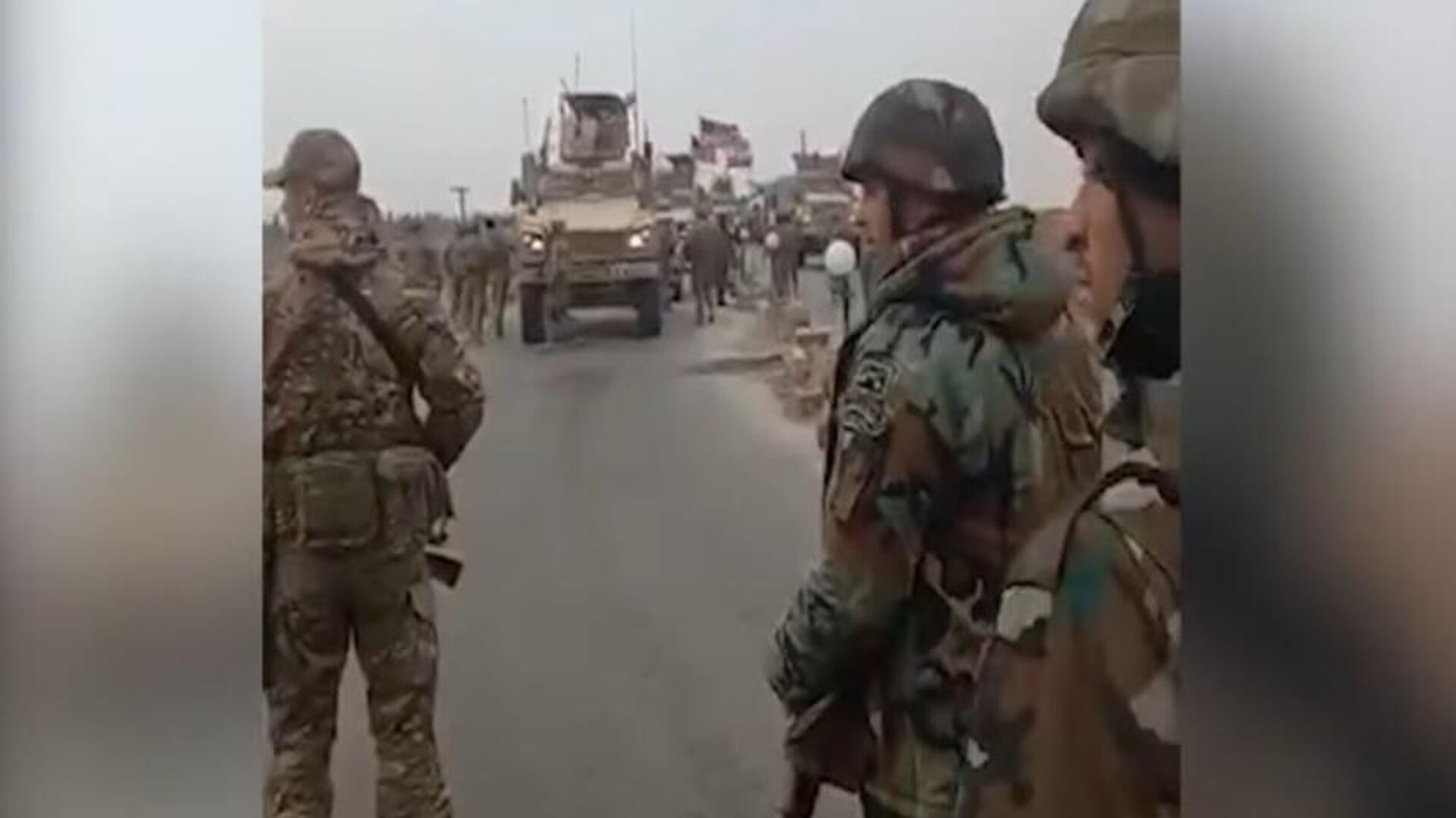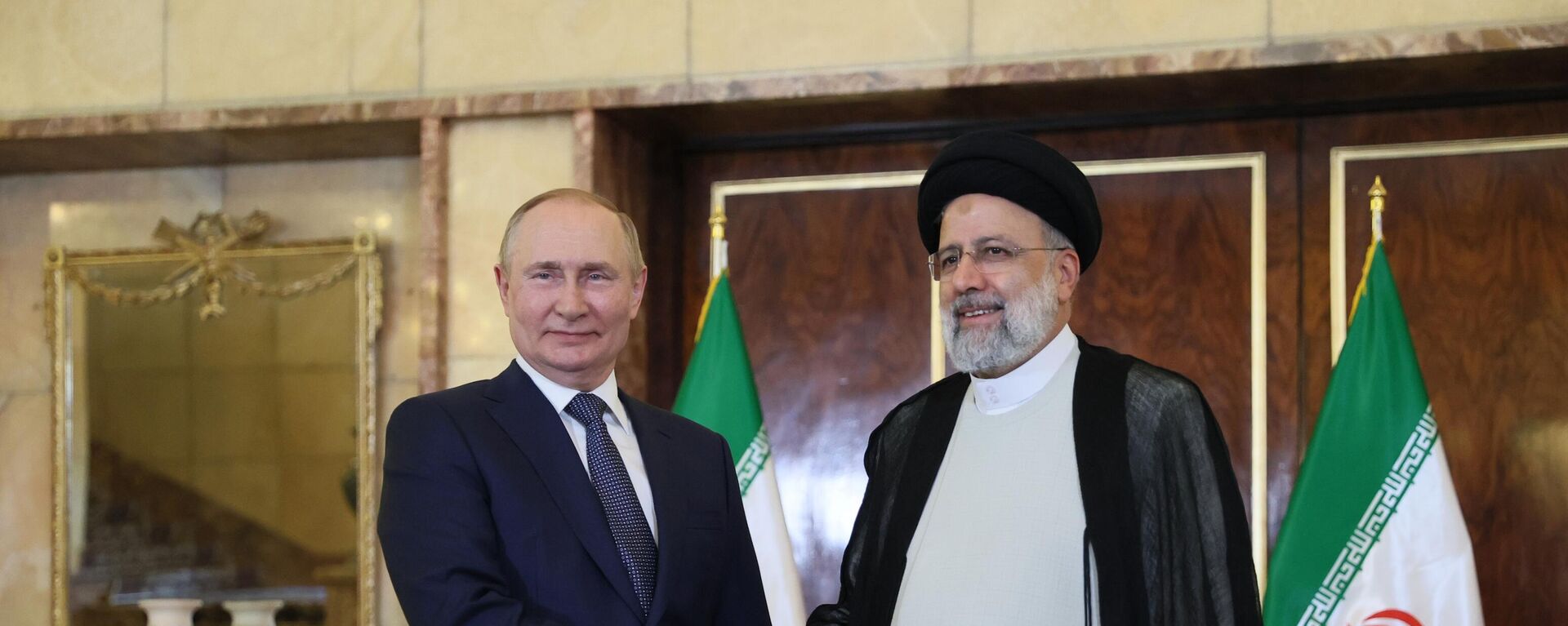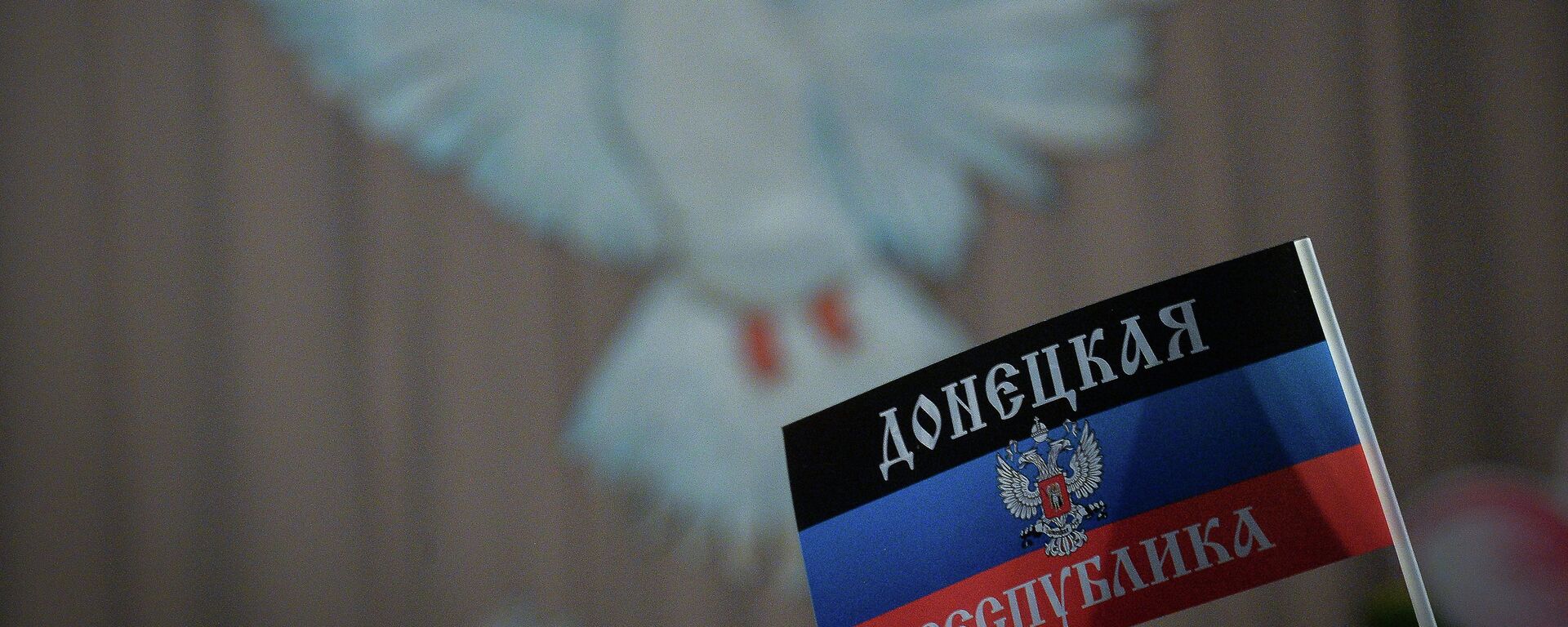https://sputnikglobe.com/20220721/us-withdrawal-fundamental-solution-to-crises-in-west-asia-irans-president-says-1097658446.html
US Withdrawal ‘Fundamental Solution to Crises in West Asia’, Iran’s President Says
US Withdrawal ‘Fundamental Solution to Crises in West Asia’, Iran’s President Says
Sputnik International
The Islamic Republic has repeatedly accused ‘outsiders’ of fomenting many of the security crises which plague the Middle East, and in 2019 proposed the Hormuz... 21.07.2022, Sputnik International
2022-07-21T12:39+0000
2022-07-21T12:39+0000
2023-01-08T16:47+0000
iran
ebrahim raisi
faisal mekdad
america
us withdrawal
syria
https://cdn1.img.sputnikglobe.com/img/07e5/0c/11/1091606010_0:28:853:507_1920x0_80_0_0_9c1734ec7b728500a37baa679a44de93.jpg
US withdrawal from Syria and the entirety of West Asia is a vital component for the return of peace and stability to the region, Iranian President Ebrahim Raisi has indicated.Syria, Raisi said, must restore control over all of its territories, and the country’s national sovereignty “must also be respected.”“Ignoring these issues causes various risks,” the Iranian president stressed.Raisi expressed confidence that “the patience and resistance of the Syrian people will make the future of the country and the region bright.”Mekdad voiced gratitude to Iran for hosting the latest round of Astana Process talks aimed at restoring peace in his country, and indicated that relations between Damascus and Tehran can be characterized as an “alliance.”On Thursday, Ali Akbar Velayati, a senior advisor to Iranian Supreme Leader Ali Khamenei, called Damascus a key member of the Axis of Resistance – the loose anti-US, anti-Israeli, anti-Saudi political and military coalition which includes Iran, Syria, Lebanon’s Hezbollah, Iraq’s Popular Mobilization Militias and occasionally, Yemen’s Houthi rebels as members.Mikdad told Velayati that Syria values Tehran’s support, and pointed to joint efforts between the two nations in confronting occupation, terror, and the illegal US, Western and Turkish interference in Syrian affairs.The Iranian president’s comments echoed remarks he made Tuesday at the Astana talks, when he called on Washington to immediately remove its troops from eastern Syria and the Middle East, and blasted Israel for its regular missile and air strikes against the country, which he said “violate the territorial integrity of Syria, destroy peace and international security.”On Wednesday, Iran, Russia and Turkey - the guarantor states of the Astana process, reiterated in a communique their commitment to Syria’s sovereignty, independence and territorial integrity, and said that the Syrian crisis can “only be solved via a Syrian-led political process facilitated by the United Nations.”Syria has been in a state of foreign-backed civil conflict since 2011, when militias took up arms against President Bashar Assad’s government on the wave of the so-called ‘Arab Spring’ protests across the Middle East. The war was quickly turned into a foreign-backed effort to overthrow Assad, with the United States and its allies, the Arab Gulf States and Turkey funneling weapons and tens of billions of dollars into the country, with the US program known as ‘Timber Sycamore’ and operated by the CIA.The Syrian Army put up a resistance to the encroachment, which eventually came to include armies of jihadist fighters including al-Qaeda* and Daesh (ISIS)*. Iran, Hezbollah and Russia eventually deployed military forces, advisors and weapons to the country to help Damascus avoid becoming a Libya-style failed state. US forces intervened in Syria in 2016, ostensibly to “fight Daesh” and support local Kurdish militia units combating terrorists. Six years on, the US continues to occupy Syrian territory east of the Euphrates and an outpost on the Syrian-Iraq-Jordanian border, with the lands accounting for 90 percent of the country’s energy wealth, and a substantial portion of its food-producing areas.Damascus has repeatedly demanded that the US and all other foreign occupiers leave Syrian territory immediately. In May, Foreign Minister Mekdad vowed that the US occupation of eastern Syria would soon be brought to an end, and called on US-allied Kurdish militias to realize that America would abandon them.* Terrorist groups outlawed in Russia and many other countries.
https://sputnikglobe.com/20220719/irans-raisi-us-must-leave-syria-entire-region-asap-1097593096.html
https://sputnikglobe.com/20220720/syria-breaks-off-diplomatic-relations-with-ukraine-in-response-to-similar-decision-of-kiev-1097602801.html
iran
syria
Sputnik International
feedback@sputniknews.com
+74956456601
MIA „Rossiya Segodnya“
2022
News
en_EN
Sputnik International
feedback@sputniknews.com
+74956456601
MIA „Rossiya Segodnya“
Sputnik International
feedback@sputniknews.com
+74956456601
MIA „Rossiya Segodnya“
iran, ebrahim raisi, faisal mekdad, america, us withdrawal, syria
iran, ebrahim raisi, faisal mekdad, america, us withdrawal, syria
US Withdrawal ‘Fundamental Solution to Crises in West Asia’, Iran’s President Says
12:39 GMT 21.07.2022 (Updated: 16:47 GMT 08.01.2023) The Islamic Republic has repeatedly accused ‘outsiders’ of fomenting many of the security crises which plague the Middle East, and in 2019 proposed the Hormuz Peace Endeavor (HOPE) plan for regional security in the Persian Gulf, the Strait of Hormuz and the Sea of Oman without US, European or Israeli “meddling.”
US withdrawal from Syria and the entirety of West Asia is a vital component for the return of peace and stability to the region, Iranian President Ebrahim Raisi has indicated.
“As the Leader of the Revolution said, the Americans must leave Syria. America’s withdrawal from east of the Euphrates and the entire region is the basic and root solution to the crises in West Asia,” Raisi
said, speaking to Syrian Foreign Minister Faisal Mekdad in Tehran on Wednesday.
Syria, Raisi said, must restore control over all of its territories, and the country’s national sovereignty “must also be respected.”
“Ignoring these issues causes various risks,” the Iranian president stressed.
Raisi expressed confidence that “the patience and resistance of the Syrian people will make the future of the country and the region bright.”
Mekdad voiced gratitude to Iran for hosting the latest round of Astana Process talks aimed at restoring peace in his country, and indicated that relations between Damascus and Tehran can be characterized as an “alliance.”
On Thursday, Ali Akbar Velayati, a senior advisor to Iranian Supreme Leader Ali Khamenei, called Damascus a key member of the Axis of Resistance – the loose anti-US, anti-Israeli, anti-Saudi political and military coalition which includes Iran, Syria, Lebanon’s Hezbollah, Iraq’s Popular Mobilization Militias and occasionally, Yemen’s Houthi rebels as members.
“The Islamic Republic of Iran has always supported and will continue to support the Resistance Front,” Velayati
told Mekdad, stressing that the nations of the Axis of Resistance should continue to cooperate to bring about the expulsion of US forces from the Middle East. He added that the ‘Zionist entity’ –Iran’s code term for Israel, has proven unable to weaken Syria and undermine its national resistance.
Mikdad told Velayati that Syria values Tehran’s support, and
pointed to joint efforts between the two nations in confronting occupation, terror, and the illegal US, Western and Turkish interference in Syrian affairs.
The Iranian president’s comments echoed
remarks he made Tuesday at the Astana talks, when he called on Washington to immediately remove its troops from eastern Syria and the Middle East, and blasted Israel for its regular missile and air strikes against the country, which he said “violate the territorial integrity of Syria, destroy peace and international security.”
On Wednesday, Iran, Russia and Turkey - the guarantor states of the Astana process, reiterated in a
communique their commitment to Syria’s sovereignty, independence and territorial integrity, and said that the Syrian crisis can “only be solved via a Syrian-led political process facilitated by the United Nations.”
Syria has been in a state of foreign-backed civil conflict since 2011, when militias took up arms against President Bashar Assad’s government on the wave of the so-called ‘Arab Spring’ protests across the Middle East. The war was quickly turned into a foreign-backed effort to overthrow Assad, with the United States and its allies, the Arab Gulf States and Turkey funneling weapons and tens of billions of dollars into the country, with the US program
known as ‘Timber Sycamore’ and operated by the CIA.
The Syrian Army put up a resistance to the encroachment, which eventually came to include armies of jihadist fighters including al-Qaeda* and Daesh (ISIS)*. Iran, Hezbollah and Russia eventually deployed military forces, advisors and weapons to the country to help Damascus avoid becoming a Libya-style failed state. US forces intervened in Syria in 2016, ostensibly to “fight Daesh” and support local Kurdish militia units combating terrorists. Six years on, the US continues to occupy Syrian territory east of the Euphrates and an outpost on the Syrian-Iraq-Jordanian border, with the lands accounting for 90 percent of the country’s energy wealth, and a substantial portion of its food-producing areas.
Damascus has repeatedly demanded that the US and all other foreign occupiers leave Syrian territory immediately. In May, Foreign Minister Mekdad
vowed that the US occupation of eastern Syria would soon be brought to an end, and called on US-allied Kurdish militias to realize that America would abandon them.
* Terrorist groups outlawed in Russia and many other countries.



